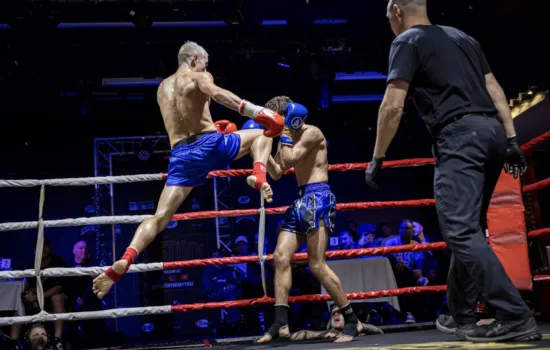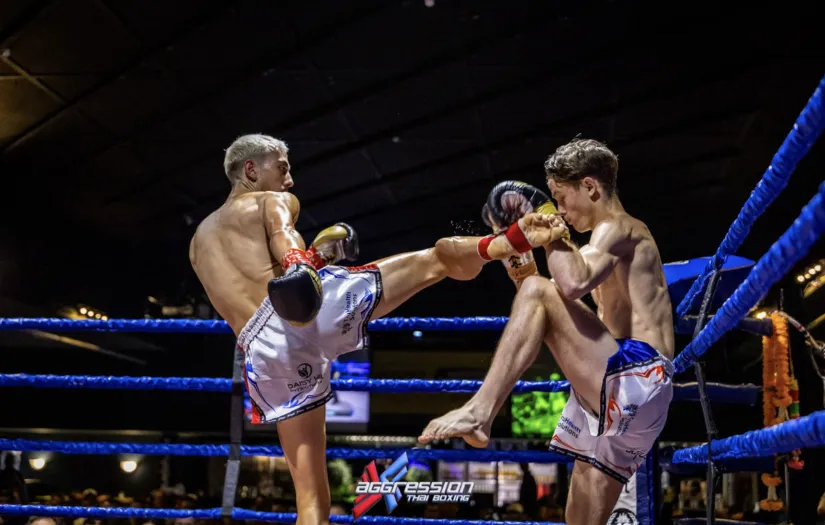
Forge an Unbreakable MMA Mindset With Mental Toughness Exercises
Forge an Unbreakable MMA Mindset With Mental Toughness Exercises
Mental toughness is as crucial as physical strength in MMA. This article explores practical exercises to forge an unbreakable mindset, focusing on visualization techniques, mindfulness, and stress management. By implementing these strategies, fighters can enhance their performance, reduce fatigue, and improve muscle recovery. We'll discuss how proper breathing techniques and plyometrics can contribute to mental resilience, and provide actionable steps to boost self-confidence and set achievable goals. Whether you're a beginner or a seasoned pro, these exercises will help you develop the mental fortitude needed to excel in the octagon.
Understand the Importance of Mental Toughness in MMA

Mental toughness is crucial for MMA success, impacting performance from fight-camps to competition. Fighters face psychological challenges that can affect their ability to execute techniques, from knee strikes to punches. Understanding the role of mindset and identifying common mental hurdles are essential steps in developing a resilient fighting spirit. These topics will be explored in depth, drawing insights from expert podcasts and real-world examples.
Recognize the Role of Mindset in Fighting Success
A fighter's mindset plays a pivotal role in MMA success, influencing every aspect of their performance. The mental approach affects how an athlete approaches training, Athlete Management, diet, and sleep routines, all of which are crucial for optimal physical conditioning. A strong mindset enables fighters to push through challenging workouts, maintain discipline in their nutrition, and prioritize recovery, setting the foundation for success in the octagon.
Beyond physical preparation, a resilient mindset impacts a fighter's ability to execute techniques and strategies under pressure. From mastering complex foot movements to incorporating gymnastics-inspired agility drills, mental toughness allows athletes to stay focused and adaptable during intense training sessions and fights. This mental fortitude often becomes the deciding factor in close matches, separating champions from contenders.
Identify Common Psychological Challenges in MMA
MMA fighters face numerous psychological challenges that can impact their performance. From the intense physical demands of wrestling to the mental strain of competition, athletes must navigate a complex landscape of emotions and pressures. Many fighters struggle with anxiety, self-doubt, and fear of failure, which can hinder their ability to execute techniques effectively during training and fights.
The psychological toll of MMA extends beyond the octagon, affecting fighters' overall well-being. Some athletes may benefit from therapy to address issues such as performance anxiety or post-fight stress. Additionally, the physical toll of training, including arm injuries from grappling or the strain of lifting sandbags, can lead to mental fatigue and frustration. Understanding the physiological responses to stress and developing coping mechanisms are crucial for maintaining mental toughness in MMA.
Practice Visualization Techniques to Improve Performance

Visualization techniques are powerful tools for MMA fighters, enhancing performance and mental toughness. This section explores effective visualization strategies and their integration into training sessions. Fighters can improve skills like the push press, manage risk, and boost VO2 max through mental imagery. Experts like Phil Daru emphasize the importance of visualization for developing grip strength and overall fight performance.
Learn Effective Visualization Strategies for Fighters
Effective visualization strategies for fighters involve creating detailed mental images of successful techniques and outcomes. Athletes can enhance their muscle memory and refine their kicks by mentally rehearsing movements, focusing on the precise ankle positioning and muscle engagement required for optimal execution. This mental practice, when combined with physical training, helps fighters develop a deeper understanding of their techniques and boosts overall performance.
Expert coaches recommend incorporating visualization exercises into daily training routines to maximize their benefits. Fighters can visualize themselves successfully executing complex combinations, defending against attacks, and maintaining composure in high-pressure situations. This mental preparation not only improves technical skills but also builds confidence and resilience, essential components of a fighter's mental toughness. By consistently practicing these visualization techniques, athletes can tap into their subconscious knowledge and perform at their peak when it matters most.
Incorporate Mental Imagery Into Training Sessions
Incorporating mental imagery into training sessions enhances MMA performance by reinforcing neural pathways associated with specific techniques. Fighters can integrate visualization exercises during warm-ups, focusing on perfecting footwork patterns or executing flawless burpees. This mental preparation primes the body for physical action, improving coordination and efficiency in subsequent drills. For more detailed training techniques, visit fight camps.
Coaches can allocate dedicated minutes for visualization within each training session, allowing fighters to mentally rehearse complex sequences. This practice bridges the gap between bodybuilding-style strength work and MMA-specific skills, helping athletes process and retain new information more effectively. By consistently pairing mental imagery with physical training, fighters develop a more comprehensive and resilient skill set.
Develop Focus and Concentration Through Mindfulness

Mindfulness practices enhance focus and concentration for MMA fighters, improving performance during intense interval training and bench press sessions. These techniques develop mental clarity and body awareness, crucial for optimizing skeletal muscle engagement and training volume. This section explores mindfulness exercises for enhanced awareness and meditation techniques to boost mental clarity in the ring, supporting overall health and fight performance.
Implement Mindfulness Exercises for Enhanced Awareness
MMA fighters can enhance their awareness through mindfulness exercises that focus on the present moment. These practices help athletes tune into their body's signals during intense training sessions, improving their ability to gauge fatigue and optimize fat utilization for endurance. By incorporating mindfulness into their routine, fighters can better execute complex movements like the snatch while maintaining a clear focus on their performance goals.
Mindfulness exercises also benefit fighters in jujutsu-based grappling scenarios, where heightened awareness of body positioning is crucial. Athletes can practice body scan techniques to develop a deeper connection between mind and muscle, leading to more efficient energy expenditure and improved technique execution. This enhanced awareness allows fighters to make split-second decisions and adapt their strategies more effectively during matches.
Apply Meditation to Boost Mental Clarity in the Ring
Meditation techniques enhance mental clarity for MMA fighters, enabling them to process feedback from their strength and conditioning coach more effectively. By practicing mindfulness, athletes develop the ability to filter out distractions and maintain focus on the task at hand, whether executing complex martial arts techniques or adapting to an opponent's strategy. This heightened mental state allows fighters to respond more efficiently to various stimuli during a match.
Regular meditation practice also helps fighters manage the psychological aspects of competition, such as pre-fight anxiety and in-ring pressure. By incorporating meditation into their training policy, athletes can cultivate a calm and centered mindset, improving their decision-making abilities and overall performance. This mental clarity enables fighters to execute their game plans more effectively and adapt to changing circumstances within the ring.
Build Resilience With Stress Management Exercises

Stress management exercises are crucial for MMA fighters, enhancing resilience and performance. This section explores how stress affects physical output, including heart rate and exercise frequency. It also covers effective breathing techniques for staying calm during intense gym sessions and weight cutting periods. Understanding these aspects of exercise physiology helps fighters build mental toughness and optimize their training.
Understand How Stress Impacts Physical Performance
Stress significantly impacts an MMA fighter's physical performance, affecting everything from powerlifting sessions to sprint training. When stress levels rise, the body's physiological response can hinder progressive overload efforts, potentially leading to plateaus in strength and conditioning. Fighters must recognize these stress-induced limitations to optimize their training regimens effectively.
Understanding the relationship between stress and physical output allows fighters to adjust their training schedules accordingly. For instance, during high-stress periods, coaches might modify the intensity of ios-based cardio sessions or alter the frequency of strength training. This adaptive approach ensures athletes maintain progress while avoiding burnout, ultimately contributing to long-term performance gains in the octagon.
Utilize Breathing Techniques to Stay Calm Under Pressure
Effective breathing techniques play a crucial role in helping MMA fighters maintain composure during high-pressure situations. By incorporating controlled breathing exercises into their training regimen, athletes can regulate their heart rate and reduce stress, even during intense kickboxing sessions or olympic weightlifting workouts. This enhanced control over physiological responses allows fighters to stay focused and execute techniques with precision, regardless of the combat sport's demands.
Coaches often integrate breathing drills into strength and conditioning routines, particularly during triceps exercises and activities aimed at muscle hypertrophy. These techniques not only support physical performance but also cultivate mental resilience. By practicing diaphragmatic breathing and rhythmic inhalation patterns, fighters develop the ability to remain calm and centered, enabling them to make clear decisions and adapt swiftly to changing circumstances in the ring or octagon.
Boost Self-Confidence With Positive Affirmations in MMA

Positive affirmations play a crucial role in boosting self-confidence for MMA fighters. This section explores creating personalized affirmations for daily motivation and integrating them into pre-fight routines. By incorporating these mental techniques alongside physical training with barbells, kettlebells, and medicine balls, fighters can develop a stronger mindset. The combination of mental and physical preparation, including running and skipping rope, enhances overall performance in the ring.
Create Personalized Affirmations for Daily Motivation
MMA fighters can create personalized affirmations that target specific areas of their training, including hip mobility and flexibility. By focusing on positive statements about their range of motion and overall physical capabilities, athletes can reinforce their confidence in their body's abilities. These affirmations should address the central nervous system's role in performance, emphasizing the mind-body connection.
Effective affirmations for MMA athletes might include statements about their strength, endurance, and adaptability. By incorporating terms related to their training, such as "My hips are flexible and powerful," fighters can mentally prepare for the physical demands of their sport. Regular repetition of these personalized affirmations can help reinforce positive beliefs and boost motivation during challenging training sessions.
Integrate Affirmations Into Pre-Fight Routines
Integrating affirmations into pre-fight routines enhances mental preparation for MMA athletes. Fighters can incorporate positive statements while performing dumbbell exercises or during physical fitness warm-ups, reinforcing their confidence and focus. This practice aligns the mind with the body's readiness for combat, preparing athletes for the intense muscle contractions they'll experience in the ring.
Coaches can guide fighters to repeat personalized affirmations during CrossFit-style warm-ups, combining mental conditioning with physical preparation. By associating positive self-talk with specific movements or breathing patterns, athletes create powerful mental triggers that boost their confidence and performance. This integration of affirmations into pre-fight routines helps fighters maintain a strong mindset throughout their preparation and into the match.
Set Achievable Goals to Strengthen Mental Fortitude

Setting achievable goals strengthens mental fortitude in MMA, enhancing skills from muay thai to biceps training. This section explores defining clear short-term and long-term objectives, considering factors like dehydration and cryotherapy. It also covers monitoring progress to maintain focus and determination, crucial for developing a fighter's mindset and overall skill improvement.
Define Short-Term and Long-Term Objectives Clearly
Clear goal-setting is essential for MMA fighters to strengthen their mental fortitude. Short-term objectives focus on immediate improvements, such as increasing the number of reps in specific exercises or enhancing technique in muay thai drills. These goals build confidence incrementally, allowing fighters to track progress and maintain motivation through regular achievements.
Long-term objectives encompass broader aspirations, such as winning championships or overcoming persistent injuries. These goals require sustained effort and help fighters navigate the inevitable pain and setbacks in their careers. By balancing short-term and long-term objectives, athletes develop resilience and maintain focus on their ultimate vision, even when facing temporary obstacles in their training or competition.
Monitor Progress to Maintain Focus and Determination
MMA fighters can effectively monitor progress by tracking key performance indicators related to their nutrition, strength, and skill development. Personal trainers often use specialized tools to measure metrics such as rate of force development, allowing athletes to quantify improvements in explosive power. This data-driven approach helps fighters maintain focus on their goals and provides tangible evidence of their advancement, reinforcing their determination to continue pushing their limits. For more insight on how to manage these aspects, exploring performance nutrition can be quite beneficial.
Incorporating diverse training methods, such as swimming, into progress monitoring can provide a holistic view of an athlete's development. By assessing improvements across various disciplines, fighters can identify areas of strength and weakness, enabling them to adjust their training regimens accordingly. This comprehensive approach to progress tracking not only enhances physical performance but also bolsters mental resilience, as athletes gain confidence from seeing measurable improvements across multiple aspects of their training.
Frequently Asked Questions
How can MMA fighters improve their mental toughness through exercises??
Mental toughness is a crucial aspect of success for MMA fighters, as the sport demands not only physical strength and skill but also mental resilience. To enhance their mental toughness, fighters can incorporate specific exercises into their training regimen. Visualization is a powerful technique that helps athletes mentally prepare for competition by visualizing themselves performing at their best. Fighters can visualize themselves overcoming challenges, winning fights, and staying composed under pressure. This exercise not only boosts confidence but also helps fighters develop a strong mindset.
Another effective exercise for improving mental toughness is mindfulness meditation. By practicing mindfulness, fighters learn to focus on the present moment, control their emotions, and stay calm in high-pressure situations. This exercise can help fighters manage stress, anxiety, and self-doubt, allowing them to perform at their peak level during fights. Additionally, goal setting and positive self-talk are essential exercises that can strengthen a fighter's mental toughness. Setting specific, achievable goals can keep fighters motivated and focused on their training, while positive self-talk can help boost self-confidence and overcome negative thoughts. By consistently practicing these exercises, MMA fighters can enhance their mental toughness and ultimately improve their performance inside the octagon.
What are the best mental toughness exercises for MMA beginners??
Building mental toughness is crucial for success in MMA as it enables fighters to stay focused, composed, and resilient under pressure. For beginners looking to enhance their mental game, there are several effective exercises that can help strengthen their mental toughness. Visualization is a powerful tool that involves mentally rehearsing fights, imagining various scenarios, and visualizing success. This exercise helps fighters familiarize themselves with high-pressure situations and boosts their confidence.
Another beneficial mental toughness exercise for MMA beginners is goal-setting. By setting specific, achievable goals, fighters can stay motivated, track their progress, and maintain their focus during training and fights. Setting both short-term and long-term goals helps fighters stay committed to their training and gives them a sense of direction. Additionally, mindfulness and meditation practices can help beginners build mental resilience by teaching them to stay present, manage stress, and enhance their concentration. These practices can also aid in regulating emotions and reducing anxiety before fights. By incorporating these mental toughness exercises into their training regimen, MMA beginners can develop the mental strength needed to excel in the sport and overcome challenges both in and out of the cage.
Can visualization exercises improve MMA performance under pressure??
Visualization exercises can be a powerful tool in improving MMA performance under pressure. By engaging in mental imagery and simulations of fights, athletes can mentally rehearse their strategies, techniques, and reactions in a controlled and focused manner. This practice helps athletes familiarize themselves with high-pressure situations, leading to increased confidence and readiness when facing real challenges in the ring. Visualization can also enhance mental toughness, concentration, and decision-making skills, allowing fighters to stay calm and composed under stressful circumstances.
Furthermore, visualization exercises can help athletes improve their overall performance by reinforcing positive habits and mindset. By visualizing successful outcomes and actions, fighters can program their minds to respond optimally in different scenarios during a match. This mental conditioning can lead to better physical execution, as the mind and body are intricately connected in sports performance. Ultimately, incorporating visualization techniques into MMA training can give fighters a competitive edge by boosting their mental resilience, strategic thinking, and adaptability in high-pressure situations.







